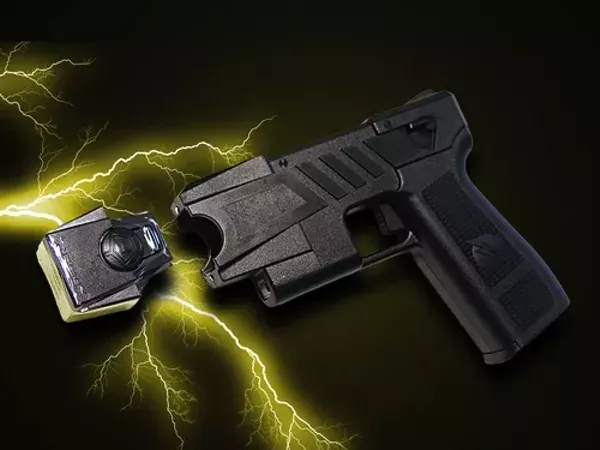Anti-brutality activists cry foul over Detroit police embrace of Taser weapons
Members of the Detroit Coalition Against Police Brutality are all charged up by last week's announcement that the Detroit Board of Police Commissioners approved the use of Tasers by Detroit cops.
The proposal, introduced by Detroit Police Chief James Craig, would allow officers to carry the weapons, which typically stun people with a five-second, 50,000-volt shock.
Officially classified as a "non-lethal" weapon, Tasers can kill. Taser use has been cited as a factor in hundreds of deaths in just the last two decades. Though, technically, the weapons are more humane and less lethal than a handgun, they can be easily misused, as when multiple police use tasers on one person simultaneously, or when police taser somebody who is already handcuffed.
For instance, 31-year-old Stanley Jackson Jr. died after being shot with a Taser, after which police put tasers in contact with his skin and lit him up several times after he was down; Jackson was pronounced dead 95 minutes later. Or take the case of 39-year-old David Kapucinski, who died after Gibraltar police Tasered him in 2010. In fact, the police department in Warren, Michigan's third-largest city, stopped issuing Tasers to police five years ago. The decision was made after several high-profile lawsuits against the city over Taser-related deaths, including that of Robert Delrico Mitchell, 16.
Critics say the problem with Tasers is that, even if they're not lethal, they can be. And when police resort to them to punish already-handcuffed prisoners or to incapacitate people who don't comply with simple orders, you can end up with more needless deaths in the long run.
And it's not just critics saying this; with funding from the U.S. Department of Justice, a policing think tank revised guidelines on Taser use in 2011. The guidelines dictated that Tasers “should not be seen as an all-purpose weapon that takes the place of de-escalation techniques.”
That's a point echoed by Detroit Coalition Against Police Brutality member Sandra Hines, who notes the department tried once before to introduce Tasers but met stiff resistance from many Detroiters. This time, she says, "They just went on and pushed it through," adding that she wishes they showed the same determination to de-escalate. "Everything that they claim to need is always something that provokes people and that escalates violence as opposed to de-escalating. It’s just another weapon to kill people."
Hines adds that she thinks the DPD probably figures, with former DCAPB leader Ron Scott safely interred at Elmwood Cemetery, nobody would be able to block it this time. But who knows who will have the last word.
Naturally, the way Detroit's police use the weapons is something the coalition and Hines will be watching very carefully.


